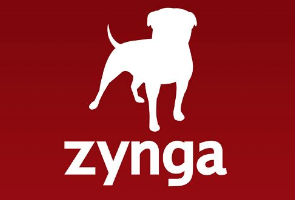02 dec 2011
 Zynga, the online gaming company, has set the price range for its initial public offering at $8.50 to $10 a share, a highly anticipated debut that could value the company at $7 billion.
Zynga, the online gaming company, has set the price range for its initial public offering at $8.50 to $10 a share, a highly anticipated debut that could value the company at $7 billion.
At the top end of that range, the four-year-old company is on track to raise $1 billion, according to a regulatory filing on Friday. Its underwriters also have the option to sell an additional 15 million shares if demand is strong.
In its offering, Zynga appear to be moving cautiously amid the market turmoil and tough environment for I.P.O.'s.
Notably, Zynga, which is set to sell 100 million shares, or 14.3 percent of its total, is offering a bigger stake than many Internet companies that have gone public this year. Several start-ups, like Groupon and LinkedIn, have sold less than 10 percent of total shares in their I.P.O.'s. That strategy of constrained supply has allowed many to soar on their first day of trading, but it has also increased volatility.
The valuation of $7 billion is also softer than many analysts had predicted earlier this year, reflecting the tempered expectations for I.P.O.'s. A number of Internet and technology companies that have gone public this year have tumbled below their offering prices. Groupon, the popular deals site, has lost about $4 billion in market capitalization since its early November debut.
Insiders are largely holding on to their shares. Zynga's two largest investors -- its chief executive, Mark Pincus, and a venture capital firm, Kleiner Perkins Caufield & Byers -- are not selling any shares in the offering, according to the filing. Mr. Pincus' stake is worth roughly 12 percent of the company, according to people familiar with the matter. Its other major venture capital investors, Institutional Venture Partners, Union Square Ventures, Foundry Venture Capital and Avalon Ventures, will sell a little more than two million shares, but only if the underwriters exercise the overallotment option.
Zynga, unlike many of its peers, is churning out a profit, a crucial selling point as it starts its roadshow on Monday. It recorded earnings of $30.7 million for the first nine months of this year, on revenue of $828.9 million.
The company, which makes the bulk of its money from the sale of virtual goods, is the top game maker on Facebook, with some 227 million monthly active users. Its latest franchise, Castleville, which started about two weeks ago, has already attracted about 20 million users on Facebook, according to AppData, a site that tracks online games.
Still, there are signs that growth may be slowing. After hitting an average of 236 monthly unique users in the first quarter, the game maker has pulled back modestly. Attracting and keeping new users is critical, since only a small percentage of Zynga's users actually purchase virtual goods.
The company, which is being advised by Morgan Stanley and Goldman Sachs, is expected to make its debut on the Nasdaq in mid-December, under the ticker "ZNGA."
Zynga aims to raise $1 Billion
NYT
At the top end of that range, the four-year-old company is on track to raise $1 billion, according to a regulatory filing on Friday. Its underwriters also have the option to sell an additional 15 million shares if demand is strong.
In its offering, Zynga appear to be moving cautiously amid the market turmoil and tough environment for I.P.O.'s.
Notably, Zynga, which is set to sell 100 million shares, or 14.3 percent of its total, is offering a bigger stake than many Internet companies that have gone public this year. Several start-ups, like Groupon and LinkedIn, have sold less than 10 percent of total shares in their I.P.O.'s. That strategy of constrained supply has allowed many to soar on their first day of trading, but it has also increased volatility.
The valuation of $7 billion is also softer than many analysts had predicted earlier this year, reflecting the tempered expectations for I.P.O.'s. A number of Internet and technology companies that have gone public this year have tumbled below their offering prices. Groupon, the popular deals site, has lost about $4 billion in market capitalization since its early November debut.
Insiders are largely holding on to their shares. Zynga's two largest investors -- its chief executive, Mark Pincus, and a venture capital firm, Kleiner Perkins Caufield & Byers -- are not selling any shares in the offering, according to the filing. Mr. Pincus' stake is worth roughly 12 percent of the company, according to people familiar with the matter. Its other major venture capital investors, Institutional Venture Partners, Union Square Ventures, Foundry Venture Capital and Avalon Ventures, will sell a little more than two million shares, but only if the underwriters exercise the overallotment option.
Zynga, unlike many of its peers, is churning out a profit, a crucial selling point as it starts its roadshow on Monday. It recorded earnings of $30.7 million for the first nine months of this year, on revenue of $828.9 million.
The company, which makes the bulk of its money from the sale of virtual goods, is the top game maker on Facebook, with some 227 million monthly active users. Its latest franchise, Castleville, which started about two weeks ago, has already attracted about 20 million users on Facebook, according to AppData, a site that tracks online games.
Still, there are signs that growth may be slowing. After hitting an average of 236 monthly unique users in the first quarter, the game maker has pulled back modestly. Attracting and keeping new users is critical, since only a small percentage of Zynga's users actually purchase virtual goods.
The company, which is being advised by Morgan Stanley and Goldman Sachs, is expected to make its debut on the Nasdaq in mid-December, under the ticker "ZNGA."
No comments:
Post a Comment